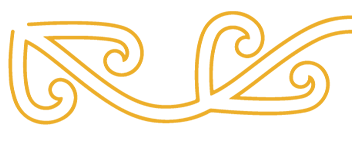Faith-Based Redress Hearings
These hearings are part of the Royal Commission of Inquiry into Abuse in Care's investigation into redress, and are split into two phases.
Phase One focuses on evidence from survivors of abuse in faith-based institutions about their experience of seeking redress. In Phase Two, witnesses for faith-based institutions (including the Catholic Church, Anglican Church, and the Salvation Army) give evidence on their processes for resolving historic and current abuse claims.
Much of the content on this page is drawn from the pages 'Redress - State and Faith-Based' and 'Faith-Based Redress Hearing' on the Royal Commission's website. Please visit their website for full information.
What is being investigated
This investigation will examine the redress processes for people who suffered abuse and neglect as children, young persons or vulnerable adults while in the care of the State and faith-based institutions.
Redress is a broad term. It can include:
- Financial compensation
- Physical, emotional and psychological rehabilitation through medical and psychological treatment, counselling, and other health and social services
- Accountability of those responsible for the abuse including through civil claims and criminal prosecutions
- The prevention of further abuse
- Acknowledgment of and apology for abuse that occurred.
Phase One
30 November to 11 December 2020
The first phase of this hearing heard from survivors who shared their experiences of abuse and the redress processes of the Catholic Church, Anglican Church, and the Salvation Army.
The witness statements and other information can be viewed on the Faith-based Redress page on the Commission’s website, under the heading 'Faith-based redress hearing – Phase One' (about halfway down the page).
Phase Two
15 March to 29 March 2021
In this second phase of the hearing, witnesses for Faith-based institutions give evidence on their processes for resolving historic and current abuse claims. The first week hears from representatives of the Salvation Army and Anglican Church; the second week mostly hears from witnesses regarding the Catholic Church; and the final day is an opportunity for closing statements.
You can view all the information on the Royal Commission's website, including transcripts of evidence when available.
Opening Statements
The Catholic Church and other relevant core participants made opening statements at the beginning of the Hearing. View on the Royal Commission's website.
Dr Thomas P Doyle
Dr Thomas is an American canon lawyer and addiction therapist. He has worked with clergy abuse survivors and publicly raised the issue of abuse in the Catholic Church since the 1980s. His work has seen him author books on the topic and appear as an expert witness at the recent Australian Royal Commission into Institutional Responses to Child Sexual Abuse.
Br Peter Horide
Br Peter is a member of the Marist Brothers. He is their current Professional Standards Delegate, making him involved in responding to complaints and engaging in redress processes.
Virginia Noonan
Virginia is the Director of the National Office for Professional Standards (NOPS). NOPS responds to complaints of abuse involving clergy and members of religious congregations, and oversees the Church’s safeguarding policies and practices. Learn more about NOPS on their website.
Fr Timothy Duckworth
Fr Timothy is the current Provincial of the New Zealand province of the Society of Mary (SM, also known as Marists).
Cardinal John Dew
Cardinal John is the Archbishop of Wellington, the Metropolitan of New Zealand, and the president of the New Zealand Catholic Bishops’ Conference. Cardinal John also gave an apology on behalf of the bishops and congregational leaders of the Catholic Church in Aotearoa New Zealand.
Closing Statements
The Catholic Church and other relevant core participants made closing statements at the end of the Hearing.
Catholic closing statements and summary >
All closing statements >
